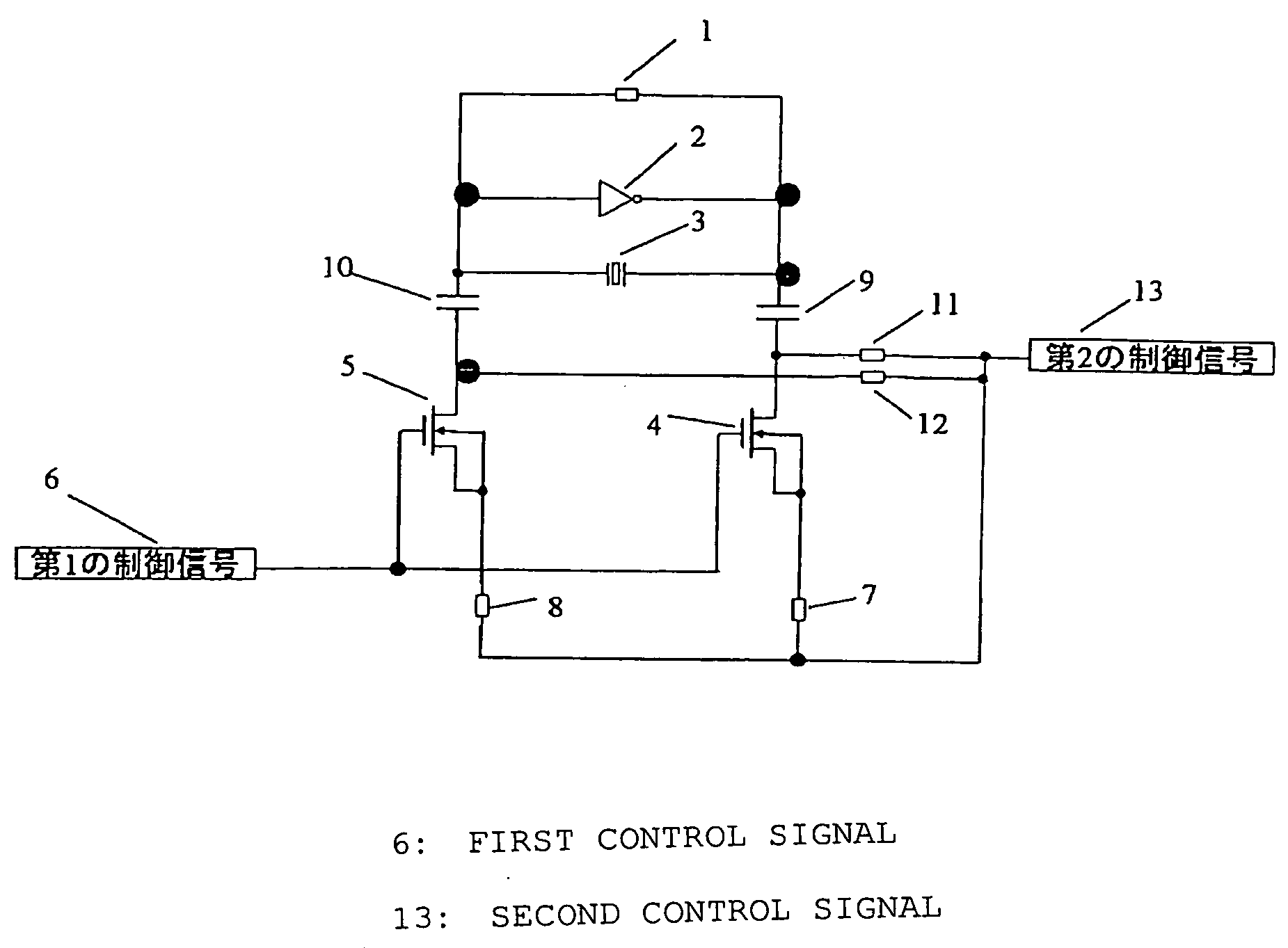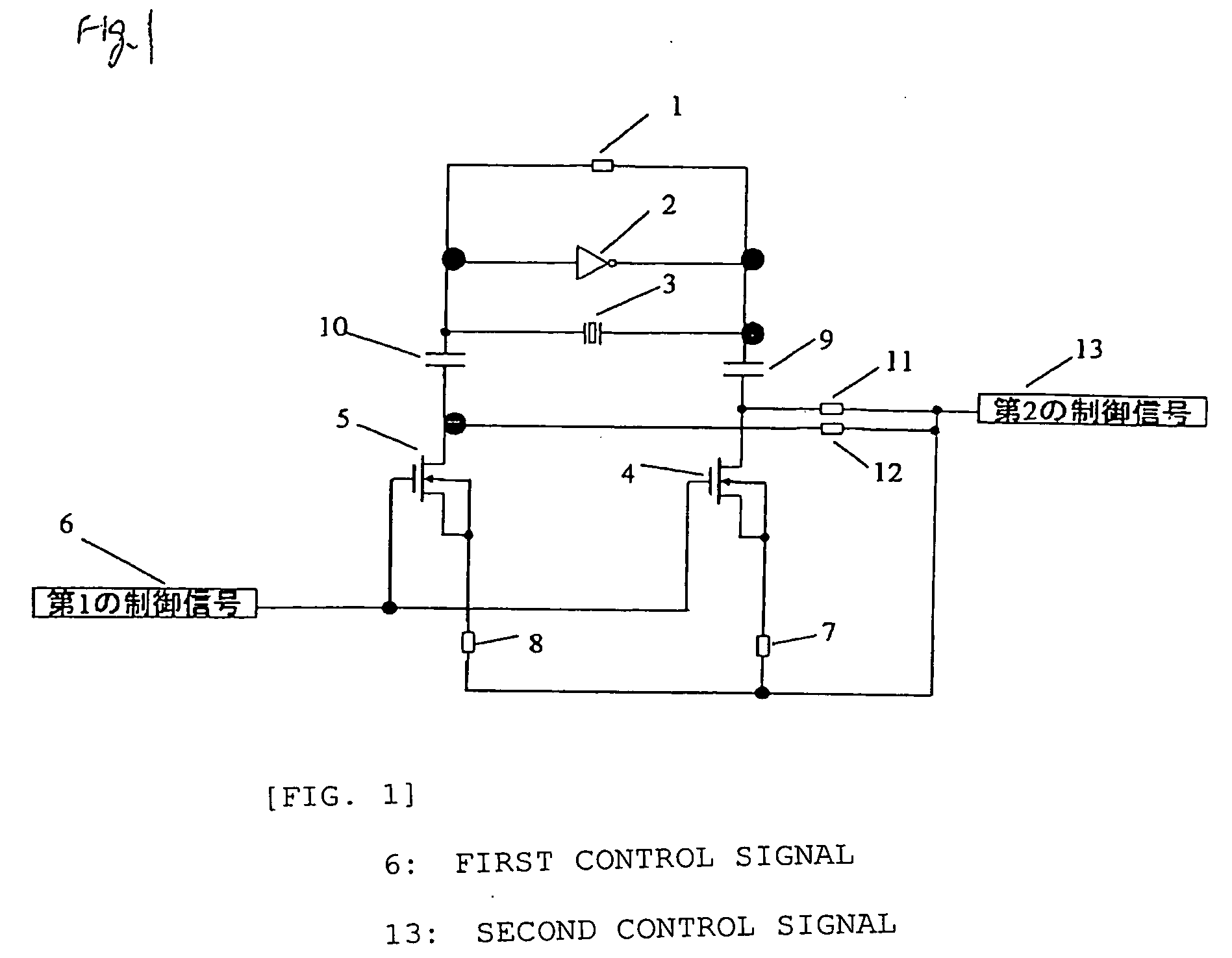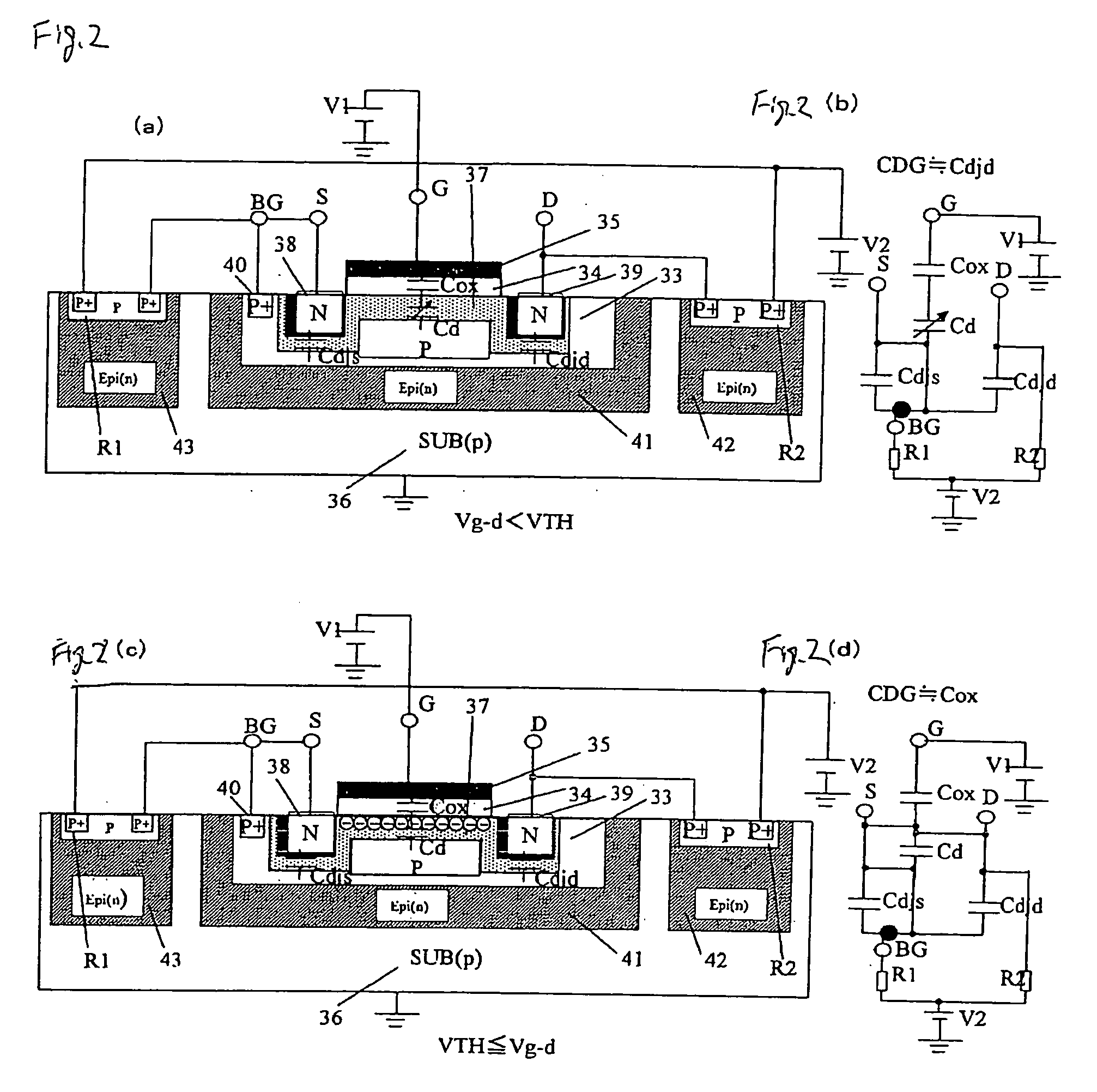Voltage-controlled oscillator
- Summary
- Abstract
- Description
- Claims
- Application Information
AI Technical Summary
Benefits of technology
Problems solved by technology
Method used
Image
Examples
first embodiment
[0073]FIG. 1 is a circuit diagram showing a configuration of a voltage-controlled oscillator according to a first embodiment of the invention.
[0074] The voltage-controlled oscillator according to the this embodiment includes an amplifier, which has a feedback resistor 1 and an inverter 2, a piezoelectric vibrator 3, which is connected to input and output terminals of the inverter 2, first and second DC cut capacitors 9 and 10, in which each one end thereof is connected to both terminals of the piezoelectric vibrator 3 is connected to one end of the piezoelectric vibrator 3, a load capacitor having first and second MOS transistors 4 and 5, in which each drain terminal is connected to the other end of each of the first and second DC cut capacitors 9 and 10, source and backgate terminals are shorted to each other, and each gate terminal is shorted from the other gate terminal, first and second high-frequency elimination resistors 7 and 8, in which each one end thereof is connected to ...
second embodiment
[0090]FIG. 5 is a circuit diagram showing a configuration of a voltage-controlled oscillator according to a second embodiment of the invention.
[0091] The voltage-controlled oscillator according to the second embodiment is configured such that the first DC cut capacitor 9 and the second DC cut capacitor 10 are connected between both terminals of the inverter 2 and both terminals of the piezoelectric vibrator 3 in the voltage-controlled oscillator according to the first embodiment.
[0092] According to the above-mentioned configuration, the voltage-controlled oscillator according to the second embodiment has the same feature as that of the voltage-controlled oscillator according to the first embodiment. In addition, since the MOS variable capacitor consisting of the first and second MOS transistors 4 and 5 and the first and second DC cut capacitors 9 and 10 are connected in parallel to each other when viewed from the piezoelectric vibrator 3, it is possible to increase an absolute val...
third embodiment
[0093]FIG. 6 is a circuit diagram showing a configuration of a voltage-controlled oscillator according to a third embodiment of the invention.
[0094] A voltage-controlled oscillator according to the third embodiment is configured such that the first control signal 6 is supplied from the first control signal generation circuit 6a, and the second control signal 13 is supplied from the second control signal generation circuit 13a in the voltage-controlled oscillator according to the first embodiment.
[0095] According to the above-mentioned configuration, the voltage-controlled oscillator according to the third embodiment has the same feature as that of the voltage-controlled oscillator according to the first embodiment. In addition, the first and second control signals 6 and 13 can be supplied from a circuit integrated with the voltage-controlled oscillator rather than an external device, thereby reducing the size of a system that uses the voltage-controlled oscillator.
PUM
 Login to View More
Login to View More Abstract
Description
Claims
Application Information
 Login to View More
Login to View More - R&D
- Intellectual Property
- Life Sciences
- Materials
- Tech Scout
- Unparalleled Data Quality
- Higher Quality Content
- 60% Fewer Hallucinations
Browse by: Latest US Patents, China's latest patents, Technical Efficacy Thesaurus, Application Domain, Technology Topic, Popular Technical Reports.
© 2025 PatSnap. All rights reserved.Legal|Privacy policy|Modern Slavery Act Transparency Statement|Sitemap|About US| Contact US: help@patsnap.com



